Meet the SERC team members and discover their unique contributions.
Tom Lowrie, Centenary Professor & Director

Tom Lowrie is the Director of SERC. He was appointed as one of the University’s Centenary Professors in 2014.
Tom has an established international research profile in the discipline area of mathematics and STEM education. His concentrated and sustained (over 20 years) body of work has focused on the extent to which primary-aged students use spatial reasoning and visual imagery to solve mathematics problems and the role and nature of graphics in mathematics assessment. More recently, his research has expanded to include students’ use of digital tools and dynamic imagery to solve problems and developing spatial curriculum for primary and secondary classrooms.
In the past 7 years, Tom has attracted more than $20 million in nationally competitive research projects, including six ARC Discovery Grants, the Early Learning STEM Australia (ELSA) project and a Department of Foreign Affairs and Trade Government Partnerships for Development Grant. He works closely with industry partners including the Australian Curriculum Assessment and Reporting Authority (ACARA), the World Bank, The Pearson Foundation and a number of education jurisdictions.
Dr Tracy Logan, Deputy Director & Associate Professor
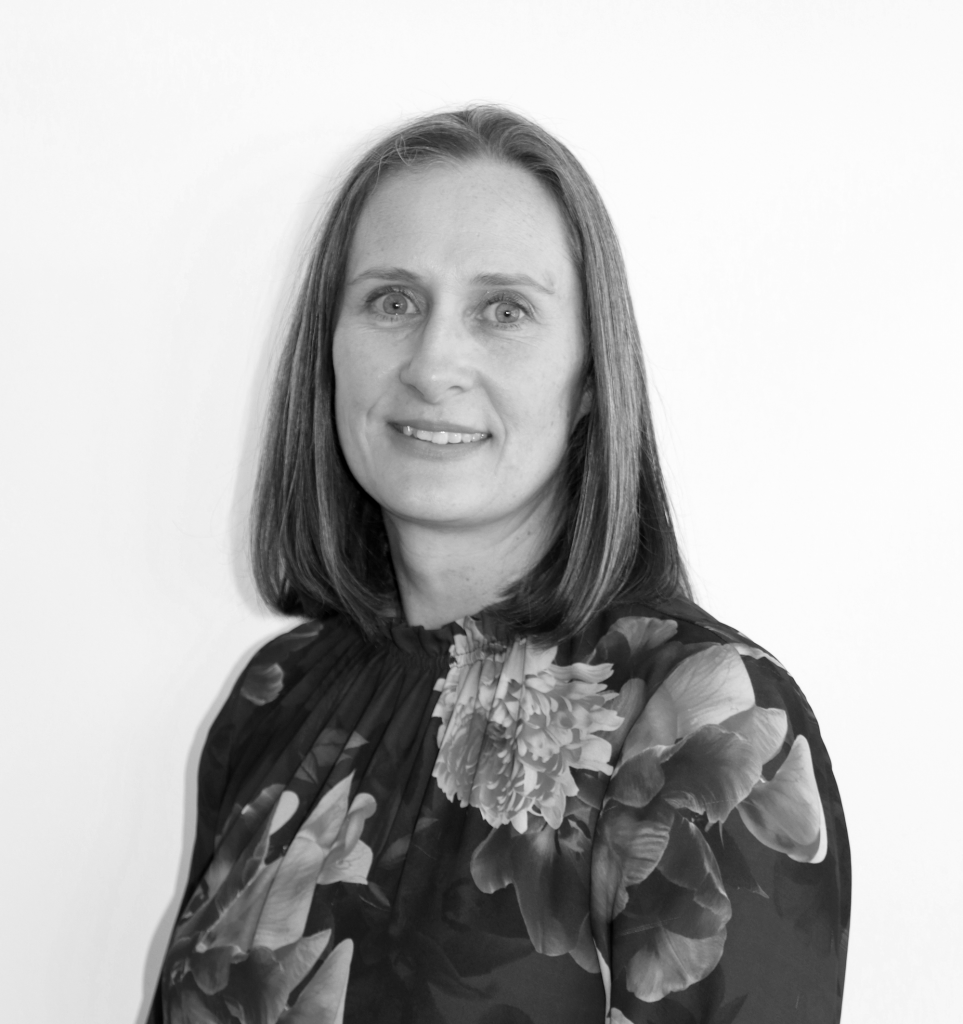
Tracy Logan is an Associate Professor in the Faculty of Education at the University of Canberra. She is a qualified primary school teacher who is currently lecturing to undergraduate pre-service teachers in the discipline of mathematics and STEM education.
Tracy completed her PhD at the University of Canberra, with her thesis focused on sustaining mathematics educational research through secondary data analysis – utilising a sophisticated framework that analyses both quantitative and qualitative data.
Tracy’s research focuses on mathematics education and, specifically, her work aims to better understand how students’ spatial reasoning is critical for success in mathematics (particularly in digital environments) and how spatial reasoning skills can be improved through targeted teaching.
As a senior staff member of SERC, Tracy has worked on many key projects since the Centre’s inception. She has been actively involved in several ARC grants in various key support roles and is currently Partner Investigator on a project investigating children’s spatial reasoning and mathematics sense-making on assessment tasks in digital environments.
Tracy has also been closely involved in the Early Learning STEM Australia (ELSA) project as the pedagogical lead for the second children’s app, Location and Arrangement, which provides young children with opportunities to engage in spatial thinking.
Tracy has recently been awarded a 2023 Discovery Grant from the Australian Research Council to develop longitudinal spatial interventions, working with Professor Tom Lowrie.
Dr Ilyse Resnick, Deputy Director & Associate Professor
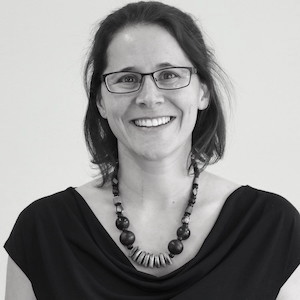
Ilyse Resnick, PhD, is an Associate Professor of Learning Sciences (Cognition) at the University of Canberra, in the STEM Education Research Centre (SERC). She earned her PhD in Brain and Cognitive Sciences at Temple University, as part of the Spatial Intelligence and Learning Center. She then completed a highly competitive Institute of Education Sciences Postdoctoral Research Fellowship at the University of Delaware, on cognitive development and applications in educational settings.
Ilyse’s program of research identifies and characterises the fundamental cognitive processes required in complex spatial and numerical reasoning. By characterising when certain spatial and numerical skills emerge, how they develop, and what specific STEM tasks they support, Ilyse is able to advance targeted, timely, and empirically driven STEM interventions.
As part of SERC, Ilyse is currently working on projects examining how spatial reasoning supports understanding in STEM and how spatial reasoning can be included in teacher education. For example, Ilyse was awarded a Discovery Early Career Research Award (DECRA) grant from the Australian Research Council (ARC) for her ‘Building STEM capacity through literacy engagement in spatial reasoning’ project. She also has recently been awarded a 2023 Discovery Grant from the Australian Research Council to develop longitudinal spatial interventions, working with Professor Tom Lowrie.
Dr Sitti Patahuddin, Associate Professor
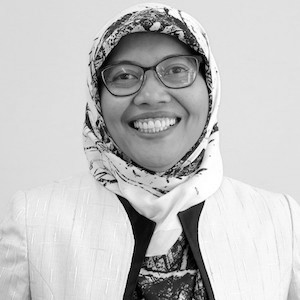
Sitti Patahuddin has been a teacher, educator and mathematics education researcher over twenty years. She has worked as a teacher trainer for pre-service and in-service primary and secondary teachers from Indonesia, South East Asia, and Australia. She also worked as a consultant in mathematics education.
Sitti completed her doctoral study at the University of Queensland in 2009. She was a Postdoctoral Research Fellow with the STEM Education Research Centre (SERC) in 2014–2016, the Institute for Professional Practice Learning and Education (RIPPLE) in 2013–2014, and the School of Education at the University of Witswatersrand, South Africa, in 2011–2012.
Her major research interest is finding effective ways to enhance teacher professional development (PD). Related to this, she has researched mathematics teaching in multiple settings (disadvantaged to more advantaged communities), assessment of teacher’s mathematics content knowledge, mathematics lesson design, the use of technology (including social media) for teacher PD and students’ mathematics learning. She is also interested in researching the sustainability and scalability of PD programs.
Sitti has worked on several research projects, including ACARA and World Bank projects, and has led a four-year (2014–2018) national project, funded by the Australian Department of Foreign Affairs and Trade (DFAT) to promote mathematics education in West Nusa Tenggara, Indonesia.
Sitti has recently been awarded a 2023 Discovery Grant from the Australian Research Council to develop longitudinal spatial interventions, working with Professor Tom Lowrie.
Holly Tootell, Senior Lecturer
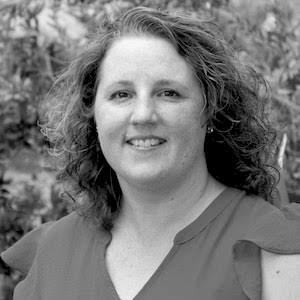
Holly Tootell, PhD, is a Senior Lecturer of STEM Education at the University of Canberra, in the STEM Education Resource Centre (SERC). Holly earned her PhD in Information and Communication Technology at the University of Wollongong, investigating the social implications of location-based technologies.
Holly has over 20 years of experience in higher education and is an experienced researcher in the social impact of technology. She has been awarded grants to research pre-school children as co-designers of technology and to explore technology-integration in multisensory environments. This work explores meaningful ways to understand both the adult and child perspectives in IT research.
As part of SERC, Holly is currently working on projects related to how young children can be engaged in design processes. She is also developing studies on how STEM Practices transition between informal and formal education practices.
Holly is committed to increasing the visibility of women in STEM. As a recent Science and Technology Australia Superstar of STEM (2021–22), Holly has participated in outreach, media and government events – raising the profile of female researchers. She is connected into outreach programs with high school students through Curious Minds and speaking events.
Holly has recently been awarded a 2023 Women in STEM and Entrepreneurship grant to expand and connect existing strengths in women’s STEM and Entrepreneurship (STEM-E) education, participation and leadership in the Illawarra. LIFT will target all stages of the pipeline: inspiring and training STEM pre-service and active teachers, building a diverse STEM-E pipeline, supporting leadership and wider innovation ecosystem participation.
Matt Bacon, Associate Director (Operations)
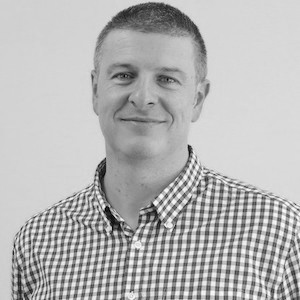
Matt has more than 17 years’ experience in higher education working in technology-enhanced learning, educational design, user experience design and curriculum development.
Matt has worked on and led research projects in augmented reality, virtual and mixed reality, learning spaces, design thinking and mobile learning.
Annabel Fagence, Senior Operations Coordinator
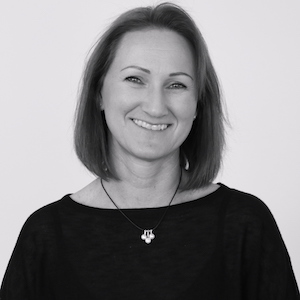
Annabel brings an array of high-level strategic, management and communication skills to SERC.
With more than 20 years’ experience in office management, marketing, public relations and event management, Annabel is adept at implementing processes and procedures that ensure the optimal operation of SERC.
Jonathan Adams, Lecturer
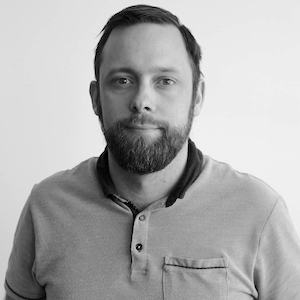
Jonathan is a lecturer in the Faculty of Education at the University of Canberra, where he convenes and lectures multiple units in both the Primary and Secondary Initial Teacher Education programs, with a focus on numeracy and mathematics. He is passionate about challenging pre-service teachers’ preconceived beliefs about mathematics and supporting them in building confidence in their mathematical ability.
Jonathan has 10 years of experience working as a High School Mathematics Teacher. He has worked in both public and private schools in the ACT and NSW, including as an Executive Teacher in the ACT, leading professional development and supporting early career educators.
Jonathan is completing his PhD in Mathematics Education, where his research is focused on how spatial reasoning training can support senior secondary students’ achievement in mathematics. He is interested in how such training can improve students’ ability to visualise and reason about mathematical concepts, improving their success in the subject.
Jonathan has an interest in digital technologies and how these can be used to support students in visualisation and comprehension of mathematical ideas.
Emily Ashcroft, Lecturer and PhD Candidate

Emily is a PhD candidate and qualified early childhood and primary educator passionate about teaching and mentoring pre-service and early career teachers. She completed her undergraduate degree in Early Childhood and Primary Education at the Australian Catholic University. Emily went on to complete her Master of Education in Educational Leadership through Charles Sturt University.
With a decade of experience in the education industry, Emily has held various positions in the Catholic Education system, the ACT Education Directorate, and International Baccalaureate schools. In 2018, she joined the Faculty of Education at the University of Canberra (UC). Emily has lectured and tutored across a range of Initial Teacher Education and Post Graduate units, including Creative Arts, English, Mathematics, and her specialisation area- STEM and Technologies. In 2022, Emily was awarded a Fellowship from AdvanceHE’s Higher Education Academy in recognition of her commitment to teaching excellence.
Emily is pursuing her PhD with a research focus on exploring teacher readiness for STEM education in early years contexts. Emily’s research extends to the UC Affiliated Schools Research Project, where she is the Primary Investigator on a successful grant application, collaborating with colleagues from UC and Macquarie University. The research team is exploring the role of embedded formative assessments in educational apps, focusing on the Early Learning STEM Australia (ELSA) apps. This project aims to enhance student learning outcomes by developing and testing more effective formative assessment practices within educational apps.
Emily is also a member of the Australian Technologies Teacher Educators Network (ATTEN), Mathematics Education Research Group of Australasia (MERGA), Australian Teacher Education Association (ATEA) and Australian Association of Educational Research (AARE).
Lucy Bennett, Lecturer and PhD Candidate
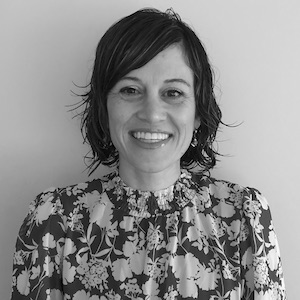
Lucy’s teaching career has spanned 20 years across the primary school sector. She initially commenced in the Catholic school sector and then moved to the Independent school sector for 15 years. Lucy undertook and completed a Master of Education at the University of Canberra in 2013.
Lucy has taught in schools across Canberra, Sydney and Melbourne. She strongly values student wellbeing, along with implementing innovative and effective pedagogical approaches to stimulate and ignite student learning.
Lucy is passionate about sharing her experiences as an academic to current Pre-Service Teachers to support and inspire them. She believes that the role of a teacher should underpin values encompassing a sense of hope for students, while fostering and nurturing continuous self-learning. Teacher values and relationships are of utmost importance.
Lucy convenes and teaches STEM units within the Faculty of Education at the University of Canberra. She was offered a Doctoral Fellowship, which commended in 2022. Lucy’s research will explore the role of graduate and highly accomplished teachers in delivering effective STEM education in Australian primary schools, as defined by the Australian Institute for Teaching and School Leadership standards (AITSL). It will examine how these standards influence teaching practices and teacher competencies in STEM education. By addressing the challenges teachers face in integrating STEM into their pedagogical approaches, the research will propose a professional development framework, aimed at enhancing teachers’ skills and strategies to promote student engagement and learning in STEM. The research will also evaluate the existing training received by teachers to gauge the current state of STEM education implementation.
Lucy has also served as a STEM coach for the Curious Minds program, which aims to empower high-performing girls who are passionate about Science, Technology, Engineering, and Mathematics (STEM), allowing them to explore their full potential.
Nicola Kovacs, Lecturer
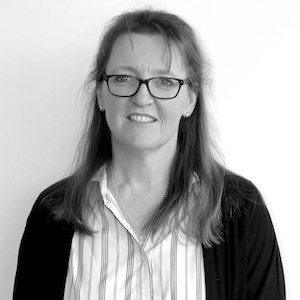
Nicola has worked as a teacher for many years. She began her teaching career as a secondary mathematics teacher in rural NSW then went on to teach a range of curriculum areas, including science and STEM. She also has experience as a primary educator.
Throughout her teaching experience, Nicola has been a coordinator for gifted and talented programs, working as a Gifted and Talented Liaison Officer (GaTLO). She led a highly successful selective gifted and talented program at an ACT Education Directorate school. She is also an advocate for STEM education, and has initiated project-based learning and STEM programs within schools where she has taught.
As part of SERC’s Mathematics Education team, Nicola is contributing to research on spatial reasoning and mathematics anxiety.
Nicola is passionate about mathematics education and the importance of the teacher in the formation of ideas about mathematics. She is now sharing her experience as she convenes, lectures and tutors pre-service teachers as a member of the University of Canberra Education Faculty in the area of mathematics education.
Outside of her teaching profession, Nicola has also completed a Master of Science (Geology) and worked as a Mine Geologist at several gold mines in NSW. She is also a published children’s fiction and non-fiction author, and has written several mathematical texts.
Nicola is a member of the Mathematics Education Research Group of Australasia (MERGA).
Deborah Pino-Pasternak, Professor
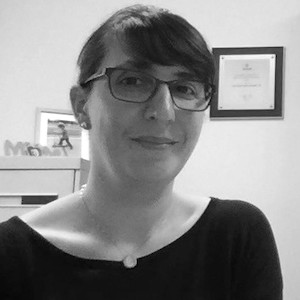
Deborah trained as a Special Educational Needs teacher in her home country (Chile), working with young children with hearing impairment (and their families) for nearly a decade. Deborah then pursued graduate studies at the University of Cambridge, investigating self-regulated learning in young children and, particularly, the influence of family interactive patterns on its development. Since then, Deborah has held research and teaching positions at The University of Cambridge, The Institute of Education in London, and Murdoch University in Western Australia.
Deborah has been the recipient of two awards by the Australian Research Council since her arrival in Australia. As part of her Early Career Award (DECRA), Deborah investigated developmental transitions in self-regulated learning and Executive Functions in the first years of schooling, and the academic correlates of such transitions on children’s numeracy and literacy development. As Chief Investigator in a simultaneous Discovery Award, she has investigated motivational and self-regulatory profiles of in-service primary teachers in Science learning.
In January 2019, Deborah joined the Faculty of Education at the University of Canberra as Associate Professor in Early Childhood Education and Communities. She has joined SERC to pursue the investigation of associations between STEM capabilities, Self-Regulated Learning and Executive Functions in Early Childhood, and to study how families do and can further encourage STEM Practices and discourses in the home environment.
Deborah’s research outputs include several publications in top peer-reviewed journals, book chapters, and edited books. She is a reviewer for a number of journals in the fields of learning sciences, early childhood, and educational psychology, and she is an Associate Editor for The Australian Educational Researcher.
Danielle Harris, Postdoctoral Researcher
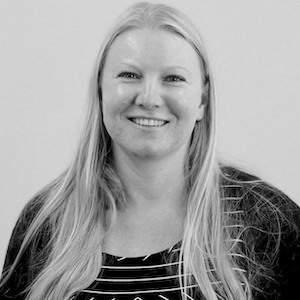
Danielle completed her PhD at the University of Canberra with a thesis exploring spatial reasoning in context, focusing on the applications of spatial skills measured by testing in real-world settings, such as classrooms. She received her Bachelor of Psychology (Honours) from Curtin University, including a semester abroad, funded by a UMAP Scholarship at the University of Minnesota.
Danielle’s research interests lie in the exploration of strength-based models related to spatial reasoning and the role large-scale spatial skills (such as perspective-taking) play in mathematics. She has presented her work at Cognitive Science and Mathematics Education conferences and has published papers in mathematics and cognitive psychology journals. Danielle was part of the Editorial team for the 2020 Mathematics Education Research Journal Special Issue: The relation between mathematics achievement and spatial reasoning.
Ross Hope, ELSA Communications Manager
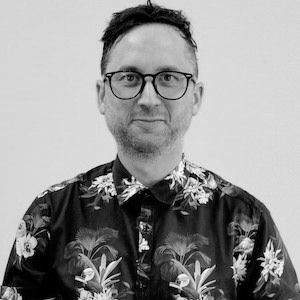
Ross is a digital content expert. He specialises in creating web content, running social media campaigns, editing publications, and working with visual media.
Ross is the Digital Communications Manager for the Early Learning STEM Australia (ELSA) Program. In this role, his primary responsibilities are to create content for the ELSA website and web apps, and write reports to the Australian Government Department of Education, Skills and Employment. He also coordinates app updates with developers, the Apple App Store and Google Play.
Ross has a wealth of experience gained during roles with previous clients such as the Queensland Government, Flight Centre, the Queensland University of Technology (QUT), the Australasian Performing Right Association (APRA|AMCOS) and Australian rock band Powderfinger.
Ross has a Bachelor of Arts (Film and Television Production) and a Master of Arts (by research) from QUT. He has also worked at QUT as a tutor, and at QUT International College as a programs educator.
Ross brings an unparalleled dynamic and creative flair to his role in the SERC team. He spent much of his twenties developing this creative flair, writing songs and fronting Brisbane indie rock bands Iron On and Disco Nap. He even played the Big Day Out festival at the Gold Coast twice. Ross also writes about the human condition on his website.
Emma Simpson, ELSA Administration Assistant
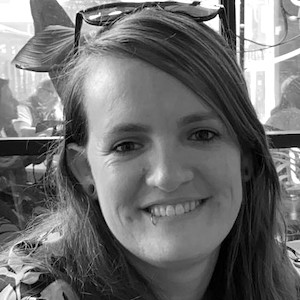
Emma has worked in the childcare sector for 19 years as an educator, assistant manager, and administration officer.
By working in different countries, Emma has gained valuable insights into the early learning sector. For example, her experience has allowed her to become familiar with different early learning education curricula in various countries. She has also enjoyed implementing these curricula in child care and education centres throughout her career.
Emma brings her vast experience in early years education to the ELSA team, assisting educators participating in the programs.
SERC HDR students
Meet the current PhD candidates completing their doctoral work at SERC
Badrun Kurnia, PhD Candidate (Australia Award)
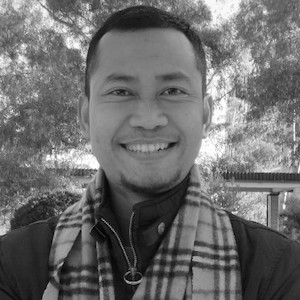
Achmad Badrun Kurnia is a PhD candidate in the faculty of Education at the University of Canberra. He is working on developing an assessment framework to investigate Indonesian high school students’ statistical literacy. His PhD study is looking in detail at the students’ statistical literacy levels and the students’ strategies in responding to data-based information.
As part of SERC, Badrun is is a facilitator for a group of mathematics teachers from Indonesia who have been invited to have professional training at UC.
Badrun holds a MSc from the University of Sriwijaya (Indonesia) in collaboration with Utrecht University (The Netherlands), focusing on Design Research and Realistic Mathematics Education (RME).
Badrun hopes that his PhD journey will enrich his expertise in assessment studies. In particular in the field of statistical literacy of students in developing countries. Badrun has recently published some of his PhD work in the Mathematics Education Research Journal: ‘The development of high school students’ statistical literacy across grade level‘.
Ida Nurmila Isandespha, PhD Candidate
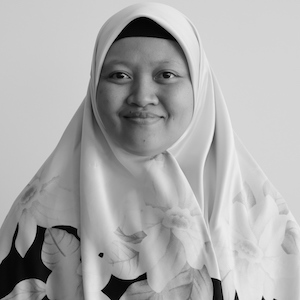
Ida is a PhD candidate in the Faculty of Education at the University of Canberra. Her supervisros are supervised by Professor Thomas Lowrie, Dr Sitti Patahuddin and Dr Tracy Logan.
Ida is studying under scholarships from the Ministry of Religious Affairs (MoRA) of Republic of Indonesia. She is currently working on research related to professional development programs for teachers in remote areas in Indonesia. This program focuses on Spatial Reasoning based on the local context.
Ida holds a Masters of Education, focusing on mathematics for primary schools from the Yogyakarta State University, Indonesia. She has worked as a lecturer in the Primary Teacher Education department in the Institute of Islamic Religious Al-Khairaat, South Halmahera, Indonesia.
Previously, Ida gained experience as a mathematics teacher for eight years. Her research interests are in accordance with the SERC goals to explore spatial reasoning in mathematics education through innovative research programs.
Ida is currently lecturing in the Faculty of Mathematics Education.
Susilahudin Putrawangsa, PhD Candidate (Mora Award)
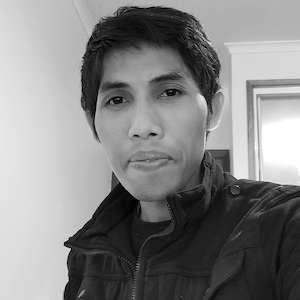
Putra is a PhD student in Mathematics Education with the Faculty of Education at the University of Canberra.
Putra’s work focuses on how to spatialise mathematics learning to promote algebraic reasoning in arithmetic. He designs learning tasks, tools and trajectories that support and encourage students to use their spatial reasoning to conceptualise algebraic principles embodied in arithmetic. In addition to spatialising mathematics learning, his research interests include: digital technology in mathematics education, Realistic Mathematics Education, design-based research in mathematics education, numeracy and early algebra.
Putra completed his master’s degree through the International Master Program on Mathematics Education (IMPoME), a collaborative program between Surabaya State University (Indonesia) and Utrecht University (the Netherlands). As a part of the degree, he conducted a study on implementing Realistic Mathematics Education when learning area measurement at primary schools.
Putra has participated in several academic and research activities on mathematics education. He was involved in the Indonesian Ministry of Education project on designing distance learning modules for primary mathematics. He has authored several books and journal articles to support mathematics teachers enhance their teaching skills. And, together with his colleagues, he also established a research institution to promote and organise collaborative research, focusing on technology in education.
Kamirsyah Wahyu, PhD Candidate (Australia Award)
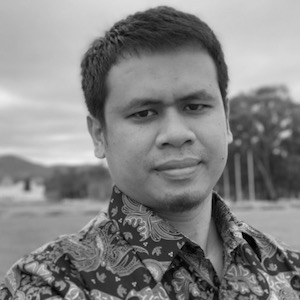
Wahyu is a PhD student in Mathematics Education with the Faculty of Education at the University of Canberra.
Wahyu’s research focuses on investigating mechanisms of spatial-mathematics performance relationships in non-ostensibly spatial mathematics content, including fraction division. The research spans spatial-related tasks or interventions design, spatial pedagogies, classroom practices, and assessment. He is also interested in other mathematics research topics, such as critical mathematics education, teacher knowledge, and digital technology.
Wahyu has been taking active roles in the research field and community. His research has been published in journals and presented at well-known conferences, such as PME. He received the Richard Skemp Memorial Fund in PME44. He also has experience as a journal editor and peer reviewer. In addition to the experience, he has been a member of IGPME (International Group for the Psychology of Mathematics Education) and MES (Mathematics Education and Society). To improve students’ numeracy in his country, he participated in the Madrasah Reform Project by the Ministry of Religious Affairs and the World Bank.
